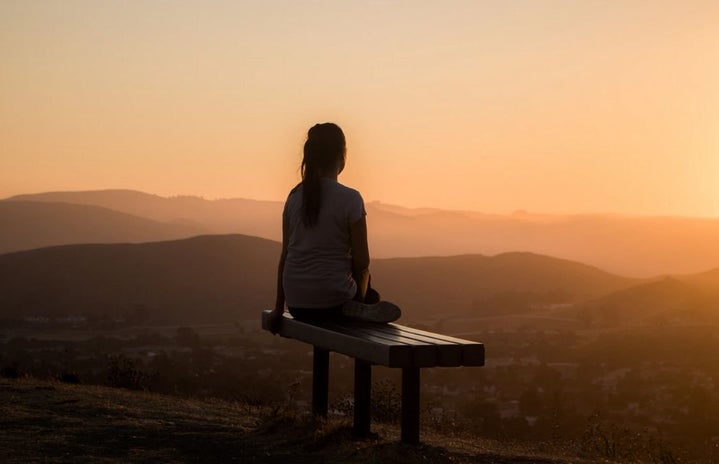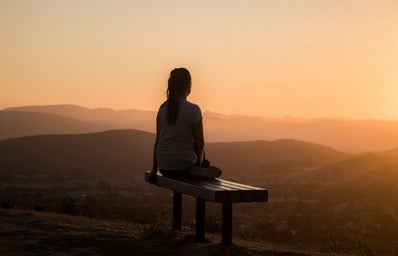As of October of 2020, 2-3% of the total world population struggles with psoriasis every day according to the National Psoriasis Foundation. Psoriasis is defined as an autoimmune disease that affects the skin; it makes the skin scaly, red, and patchy, causing an annoying disturbance to patients. Although psoriasis can be managed, there is no cure to the disease, and it can come in many forms: either on one’s hands or feet, between folds in the skin, and all over one’s body in serious circumstances. While there are many studies to find a cure to this disease, millions of people suffer, and psoriasis outbreaks can be triggered by weather, stress, and other health factors, similarly to eczema on the skin. It can be both a non-obstructive disease in one’s daily lifestyle, or it can be debilitating for one to endure depending on the severity of the disease. It can have risks to many different mental and physical consequences, such as psoriatic arthritis, Type 2 Diabetes, mental health struggles, eye conditions, cardiovascular disease and other adverse results.
My story with psoriasis started when I was about 5 years old. While my psoriasis was not severe at this time, it still was affecting my scalp area and other areas around my body. For the time being, it was manageable without any doctor or dermatologist help.
Slowly, my teen years started to creep. At first, I was living the time of my life as a 6th grader, unbeknownst to the diagnosis I would endure during my puberty years. I started to notice a growth in patches on my body, each one of them popping up like moths swarming a light source. One after the other, patches were covering my body top to bottom. I had scalp psoriasis, psoriasis covering my trunk and stomach area, and all the way down to my legs. Not only did they change my physical appearance, but they became uncontrollably itchy and red, leaving an excruciating burning pain around my body. At 12 years old, I was diagnosed with a severe case of psoriasis. I didn’t know what to expect of this disease: would it control my life? I didn’t realize the impending doom that my diagnosis would have, with its repercussions lasting until the present day.
Unfortunately, my diagnosis was genetics, for which I had no control over the disease. My mom had her qualms with psoriasis growing up, especially since she had struggled with it during her puberty years and after her pregnancy with me. While I had no control over the diagnosis, I was relieved that someone in my family knew the issues that psoriasis had posed. Yet as a young 12 year old, taking in the diagnosis of psoriasis was a hard burden to bear, even knowing the advice my mom had provided from her previous diagnosis with the disease.
Psoriasis in my body grew worse and worse throughout the years. My parents and I first started a more direct treatment on my body through topical medicines. We went from dermatologist to dermatologist, trying to find answers about my disease and ways to combat it without invading my body. However, it led to unsatisfactory results. Every doctor we went to would give a medicine that had my psoriasis disappear for only a short amount of time, and it would come back stronger and itchier than before. It was to the point where we lost faith in the Western medicine for treating my psoriasis.
From there, we decided to take on alternative medical practices my mom had done when she struggled with psoriasis. Being from a predominantly South Indian family, we looked for ways to treat psoriasis through Ayurvedic therapy that would help the situation through internal treatment. I was to take excruciatingly bitter powders mixed with butter to ease the distaste. But, as a 16 year old, I only resisted, knowing how abhorrent the medication was. Once again, my family found ourselves in a rut, not knowing what to do to deal with my growing psoriasis marks across my body.
Psoriasis did not just affect me physically; it also took a toll on my mental health. Growing up, I was always comparing myself to girls my age who could wear swimsuits and bikinis, being able to show off their skin without any noticeable marks across their bodies. I always felt envious of my peers feeling confident to wear tank tops to school, or show off their skin either in shorts or t-shirts, which made me feel more insecure about myself. I would only wear tank tops under my shirts to hide my psoriasis from others, and wore full sleeve shirts and pants to not show off my skin, even on scorching hot days. I noticed that individuals started to pick on me because of my psoriasis. People would look at my scalp and comment that I had dandruff or white marks all over my scalp, when in reality, it was just my scalp psoriasis flaking uncontrollably and burning my head. I would also get stares from students if I even showed off my skin, as they always questioned and made fun of the marks I had across my arms and my legs. My self-confidence decreased, leading to more mental health issues I endured throughout my high school career.
When I reached college, I knew I had to be more confident and own my body. I started to feel more comfortable wearing tops no matter what people said. Due to my stressors decreasing and the humid weather, my psoriasis started to decrease. Feeling self-confidence in my own body was a long journey to endure, but it was worth every second knowing that my psoriasis was getting to a better stage. When I started to love myself and check in with my mental health, it made a huge difference in my skin, as the disease is correlated with mental health.
I am extremely grateful that my psoriasis has not led to any serious disability for myself in the present day. It is still something that I am learning to treat and cope with, through checking in with my mental health and making sure I am getting the right treatment I need which has been useful in my livelihood. If you are someone who struggles with a skin disease that has adverse effects both mentally and physically, I know that you will endure it with your strength and confidence, you are not alone on your journey. Fighting skin diseases requires patience, time and willingness to cope! But with proper de-stressing methods such as meditation, checking in with your self-needs, and feeling confident in your own body, you will be sure to succeed in your treatment.


